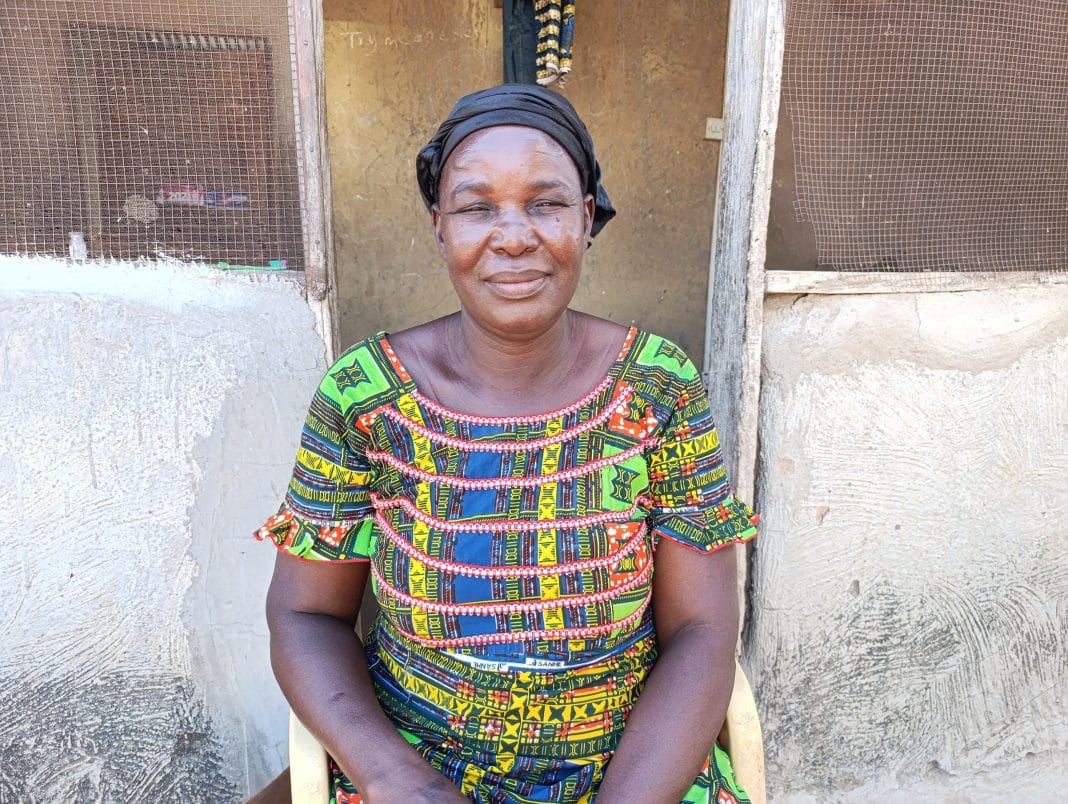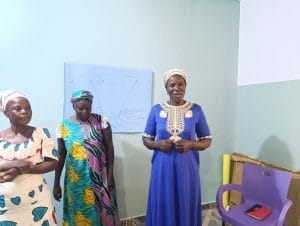The sun sets over Sakote, a serene community in the Nabdam District of Ghana’s Upper East Region. Six men, weary from their day on the farms, gather at a familiar spot. Seated on locally made benches with calabashes in hand, their laughter and lively conversations echo in the air.
The calabashes, carved from the hard shells of gourds (Lagenaria siceraria), brim with pito, a cherished local beer brewed from fermented millet or sorghum.
These men are at the home of Madam Baamah Nuah, whose pito is renowned across the community. For years, her compound has been a hub of connection and camaraderie, a place where locals gather to share stories and unwind with her expertly brewed pito.
A Story Rooted in Resilience
Baamah Nuah, a 47-year-old widow and mother of six, has long balanced the demanding roles of farmer and pito brewer. Her journey into pito brewing began under challenging circumstances. For years, her husband was bedridden, and she supported her mother-in-law in brewing pito. When her mother-in-law passed away, Baamah took over the trade entirely, determined to provide for her family.
“It was very hard in the beginning,” Baamah recalled. “I struggled to feed my children and care for my husband.”
Living hand-to-mouth, she often sold pito without making any profit, using all her earnings to cover daily expenses. At times, she had to buy grain on credit just to keep brewing.
Her financial struggles were compounded by poor record-keeping. Before participating in a life-changing training program, she never calculated her expenses or tracked her profits. “I didn’t take the time to see what I was spending or earning. I just spent the money as it came in,” she explained. This lack of financial oversight left her business stagnant and her family’s future uncertain.
The Turning Point
Baamah’s fortunes began to change when she joined a training program organized by the Widows and Orphans Movement (WOM) in partnership with the KGL Foundation. WOM, a leading advocate for women’s rights in Ghana, teamed up with KGL to launch the Advancing Financial Inclusion and Women’s Entrepreneurship project, aimed at equipping women in the Upper East Region with financial literacy and entrepreneurship skills.
During the training, Baamah improved her numeracy skills, embraced budgeting, and learned effective saving strategies. One concept that resonated deeply with her was the “leaky bucket” model. She realized her spending habits were like holes in a bucket, allowing her hard-earned income to drain away without making any progress.
“The training made me see that my money wasn’t working for me,” she said. “I had to stop unnecessary spending and take control of my finances.”
Transformation Through Knowledge
Armed with her newfound skills, Baamah began meticulously calculating her expenses after each sale, ensuring she accounted for costs before spending her income. This shift allowed her to identify her profits and start saving—a practice she had never considered before.
Today, Baamah’s life has transformed. With her savings, she has begun welding a container to set up a pito-selling point at the roadside in Sakote market. She believes this move will attract more customers and significantly boost her sales.
“I used to sell only from home, but now I’m preparing to expand my business and take it to the market,” she shared proudly.
Though she lost her husband, Baamah takes comfort in knowing she provided him with the care he needed during his final days. The financial discipline she gained has not only stabilized her business but also allowed her to secure her family’s future.
A Woman on the Rise
Baamah’s journey is a powerful testament to resilience, determination, and the transformative impact of education. With support from WOM and the KGL Foundation, she has moved from barely surviving to thriving.
Her story is one of growth—not just for herself but also for her community. Her improved business inspires others to pursue financial literacy and stability.
“My life has changed,” Baamah said with a smile. “Now, I can save, grow my business, and dream of a better future for my children.”
Through partnerships like those between WOM and KGL, women like Baamah are not just learning to manage their finances—they are building pathways to prosperity and rewriting their legacies.
Source: A1Radioonline.Com | 101.1MHz | Mark Kwasi Ahumah Smith | Bolgatanga



